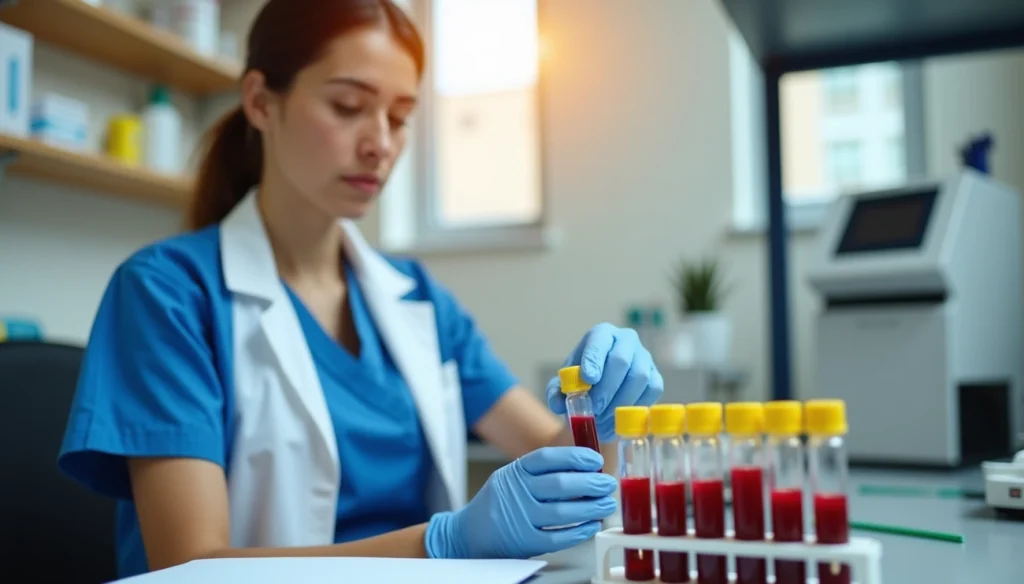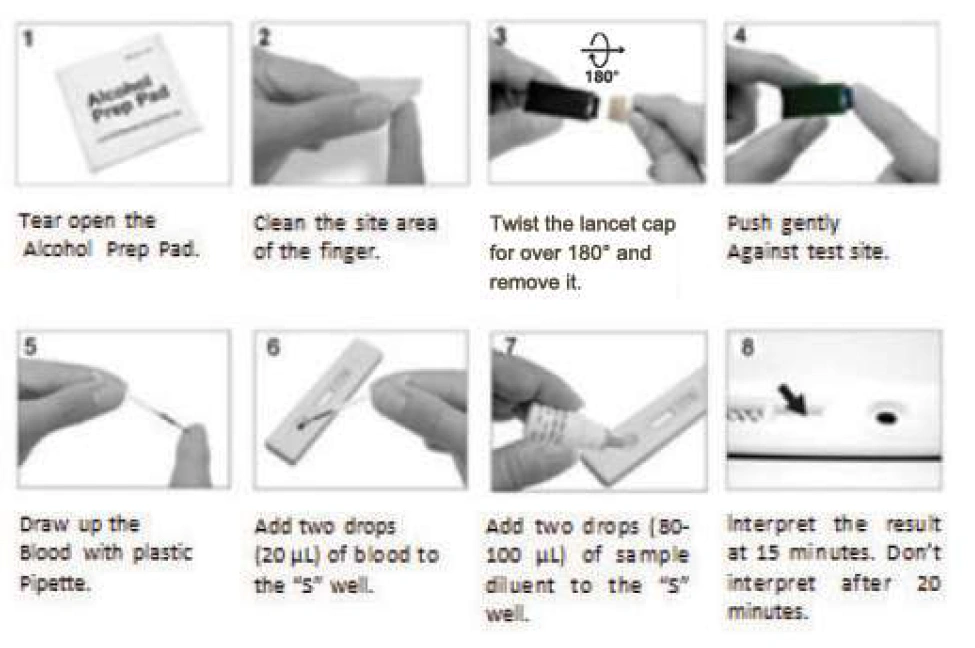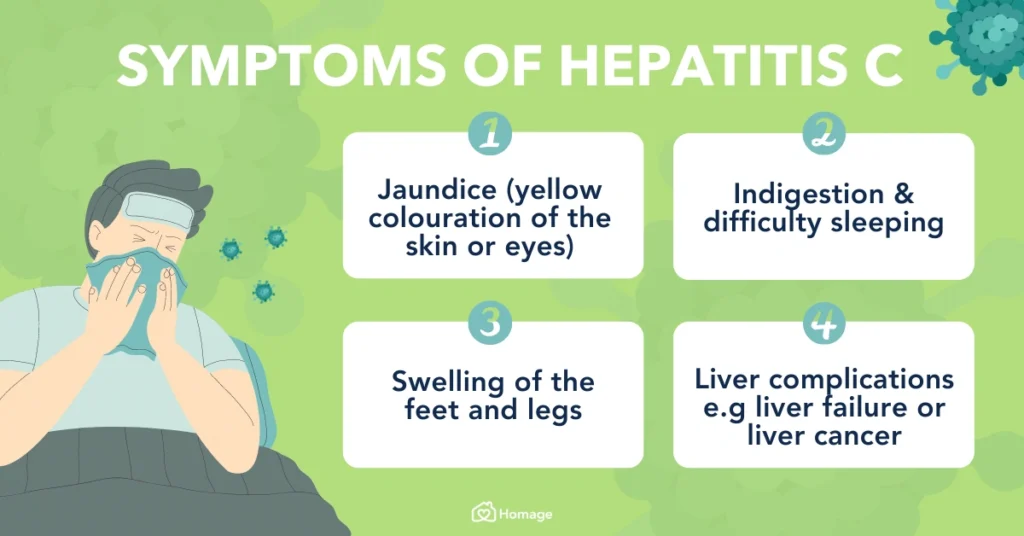Hepatitis Testing in Malaysia Step by Step Guide with Costs

Hepatitis testing could save your life. The shocking reality is that only 13% of Malaysians with chronic hepatitis B are aware of their condition.
Malaysia has about 1 million people living with chronic HBV infection. This virus causes more than 80% of liver cancer cases in the country. The death toll is significant – chronic liver disease claims 1,500 Malaysian lives yearly, while liver cancer takes another 1,750.
These numbers paint a grim picture, and most cases still go undetected. Malaysia’s healthcare system wants to identify 90% of people living with viral hepatitis by 2030. Your first step toward protection starts with getting tested, regardless of whether you’re concerned about hepatitis B or C.
STD Private Clinic provides detailed hepatitis testing services to help determine your status. This piece guides you through testing procedures, expenses, and essential information about hepatitis testing in Malaysia.
1. What is hepatitis testing in Malaysia?
Blood screening tests can detect viral markers that show liver inflammation from hepatitis viruses. Malaysian healthcare providers use these tests to identify infections before they damage the liver. The screening process has serological tests for hepatitis surface antigens and antibodies. Doctors may request nucleic acid tests (NAT) to confirm results.
Why early testing matters
Detecting hepatitis early is vital because most infections don’t show symptoms until the liver suffers extensive damage. About 40-80% of people with chronic hepatitis don’t know they’re infected. The disease can progress silently and cause severe complications without proper testing.
Untreated hepatitis B and C can lead to serious health issues such as:
- Chronic liver disease
- Liver cirrhosis (scarring)
- Liver failure
- Hepatocellular carcinoma (liver cancer)
“Most hepatitis cases are asymptomatic. Without screening, you may not realize you have the disease until it has progressed to a chronic stage,” explains medical experts. Testing is the life-blood of Malaysia’s strategy to eliminate viral hepatitis as a public health threat by 2030.
Our team at STD Private Clinic stresses early testing because treatments work best before extensive liver damage occurs.
Types of hepatitis common in Malaysia
Malaysia deals with three main types of viral hepatitis:
Hepatitis B (HBV): This is the most common form, and about one million Malaysians live with chronic infection. HBV causes more than 80% of liver cancer cases in the country. Currently, HBV affects about 1% of Malaysia’s population.
Hepatitis C (HCV): Around 2.5% of Malaysian adults have contracted HCV. The virus affects an estimated 200,000 people in Malaysia. Unlike hepatitis B, HCV has no vaccine yet, but proper treatment can cure it.
Hepatitis A (HAV): This virus spreads through contaminated food and water. It usually causes acute illness and clears up without becoming chronic.
Malaysia started universal hepatitis B vaccination for newborns in 1989. Over the last several years, this program reduced HBsAg rates from 5-7% to just 0.3% among those born after 1999.
Who should get tested
Malaysia’s Ministry of Health recommends testing for these high-risk groups:
- Family members and household contacts of HBsAg-positive persons
- Healthcare workers (especially frontliners)
- People who inject drugs
- HIV and sexually transmitted infection (STI) patients
- Blood donors
- Foreign workers and students
- Hemodialysis patients
These groups should also think over getting tested:
- Men who have sex with men
- People with multiple sexual partners
- Pregnant women (to prevent mother-to-child transmission)
- People with chronic liver disease
- Travelers to countries with high hepatitis rates
“Routine screening is especially important for high-risk groups,” healthcare professionals emphasize. STD Private Clinic offers private hepatitis testing for all risk groups. We provide specialized counseling if you’re concerned about sexually transmitted hepatitis.
Looking for “hepatitis testing near me”? Our STD clinic locations are easy to reach and have complete screening services across Malaysia. Test costs vary between government facilities and private clinics like ours.
Note that early detection through screening leads to timely treatment and prevents severe complications. Taking this step to get tested could save your liver—and your life.
2. Where to get tested: Clinics, hospitals, and STD Private Clinic

Image Source: Tung Shin Hospital
Malaysia offers many hepatitis testing options from government hospitals to private clinics. You can choose based on what works best for your needs and budget. Getting accurate results and proper follow-up care depends on finding the right testing center.
Government vs private testing centers
Government facilities cost less than private centers for hepatitis testing. The Department of Hepatology at Selayang Hospital acts as the national tertiary referral center for liver diseases and provides detailed diagnostic services. Many government health clinics also offer screening services to Malaysian citizens.
Government and private testing centers differ in several ways:
- Cost: Government facilities charge less, and Malaysian citizens get some services free
- Waiting time: Private clinics get you tested faster
- Test availability: Only select government hospitals like Hospital Kuala Lumpur, Hospital Sungai Buloh, Hospital Selayang, Hospital Sultanah Bahiyah, Hospital Umum Sarawak and Hospital Melaka offer confirmatory HCV tests
- Accessibility: Private clinics let you schedule flexibly while government facilities often have long queues
Hospitals and central/regional laboratories handle most hepatitis B and C screening, except for blood donors and foreign workers. Private clinics serve as a convenient option for people who need quick testing.
Why choose STD Private Clinic
STD Private Clinic specializes in sexual health testing and stands out for hepatitis screening. Here’s what makes us different:
Detailed testing options: Our clinic offers rapid tests and confirmatory laboratory tests for hepatitis B and C. The hepatitis B rapid test costs RM30 and hepatitis C rapid test costs RM40. Results come back in 20 minutes.
Confidentiality: We protect your privacy through discreet testing procedures and confidential results delivery.
Cost-effective packages: A full baseline blood test package costs RM200 and includes hepatitis screening among other vital tests. Other private facilities charge up to RM400 for full-panel STI testing.
Sexual health expertise: The core team specializes in STIs including hepatitis and guides you through the testing process.
Follow-up support: We provide post-test counseling and treatment referrals as needed.
STD Private Clinic makes hepatitis testing simple and stress-free. Our team delivers quick and confidential testing in Malaysia with reliable results. We offer both clinic visits and mobile services to give you peace of mind. Book your appointment now at www.stdprivateclinic.com
How to find hepatitis testing near me
Finding a hepatitis testing location in Malaysia is easier than ever. Here’s where to look:
- Government hospitals: Selayang Hospital, Hospital Kuala Lumpur, and Hospital Sungai Buloh provide hepatitis testing services
- Ministry of Health clinics: Government health clinics offer screening but might refer you to hospitals for confirmatory tests
- Private medical centers: Options include STD Private Clinic, The Red Clinic, SpringHill Clinic, Klinik Casabrina, and hospital groups like KPJ and Pantai
- Online search: Look up “hepatitis testing near me” or “STD clinic Malaysia” to find nearby options
- NGO screening events: Free testing campaigns happen through health NGOs
Cost, convenience, and service quality should guide your choice. Private clinics like STD Private Clinic work faster and offer tailored care, while government facilities cost less but take longer.
Private hospitals like Pantai charge between RM100-250 for hepatitis B blood tests. STD Private Clinic’s simple hepatitis screening starts at RM30 for hepatitis B and RM40 for hepatitis C rapid tests.
High-risk groups like healthcare workers with needlestick injuries, people who inject drugs, and foreign workers get screened through Ministry of Health programs. Malaysia aims to eliminate viral hepatitis by 2030, and testing services need to expand beyond hospitals to include more primary care providers.
3. Step-by-step testing process explained

Image Source: Buy STD Rapid Test Kits For Home Testing | TestHIVstatus.com
The hepatitis testing process has five key steps that ensure accurate diagnosis and proper care. STD Private Clinic follows a standard procedure to make your testing experience comfortable and informative. Here’s what happens during each stage.
Step 1: Pre-test consultation
You’ll meet with a healthcare provider for a brief consultation. This step has:
- Information about hepatitis and benefits of testing
- Discussion about test result confidentiality
- Clear explanation of positive and negative results
- Your verbal consent (testing is always voluntary)
Our staff at STD Private Clinic will assess your risk factors with a questionnaire. This helps us determine the most appropriate hepatitis tests for your situation. Pre-test counseling gives you essential information quickly without creating barriers to care.
Step 2: Blood sample collection
A healthcare professional will collect your blood sample using one of two methods after your consultation:
Finger-stick method: A small lancet pricks your fingertip to collect a drop of capillary blood. This quick and minimally invasive method works well for rapid diagnostic tests (RDTs).
Venous blood draw: A small needle collects blood from your arm’s vein to get a complete test. You might feel a slight sting as the needle goes in or out. The process takes less than five minutes and provides samples for both rapid and laboratory-based tests.
Our trained staff at STD Private Clinic performs all blood collection procedures with proper safety protocols for your comfort.
Step 3: Lab analysis (POCT or NAT)
Your blood sample undergoes analysis through either:
Point-of-Care Testing (POCT): These rapid tests use immunochromatographic methods to detect hepatitis surface antigens or antibodies. The SD Bioline HCV rapid test shows excellent accuracy with 99.3% sensitivity and 98.1% specificity. Results appear within 20 minutes as visible lines on a test strip.
Nucleic Acid Testing (NAT): Labs use molecular tests like PCR to confirm active infection. These tests measure viral load and can detect as little as 10-25 IU/mL for hepatitis B and C.
Our STD clinic uses quality-assured testing methods that meet World Health Organization’s standards for in vitro diagnostics.
Step 4: Getting your results
You’ll get your test results on the same day for rapid tests. Result interpretation involves:
- Negative result: Control line shows with no test line
- Positive result: Both control and test lines appear
- Invalid result: Unclear or missing control line (test needs repeating)
Laboratory-based tests usually take 2-3 days. STD Private Clinic delivers all results confidentially, either in person or through secure channels based on your preference.
Step 5: Post-test counseling
Everyone receives post-test counseling whatever their results. This vital step has:
- Clear explanation of your test results and diagnosis
- Information about prevention methods and lifestyle changes
- Referrals for vaccination if needed
- Discussion about telling partners or family members
- Connection to treatment services if required
Positive results also include counseling about confirmatory testing options and treatment paths. STD Private Clinic provides complete support throughout this process to help you understand your results and next steps.
Note that hepatitis testing in Malaysia follows these standard steps whatever the location, though STD Private Clinic offers extra privacy protection and specialized care for sexually transmitted forms of hepatitis.
4. Understanding the costs of hepatitis testing
The cost of hepatitis testing in Malaysia varies based on your choice of healthcare facility and the specific tests you need. This guide will help you pick the right testing option that fits your budget and needs.
Cost of hepatitis B testing
Getting tested for hepatitis B at government hospitals and healthcare facilities won’t break the bank. You’ll pay RM 7 to RM 50 for simple tests. Public facilities charge about RM 7 for the HBsAg test that detects hepatitis B surface antigen.
Private hospitals like Pantai charge between RM 100 to RM 250 for a complete hepatitis B blood test. These tests measure important markers such as:
- Hepatitis B surface antigen (HBsAg)
- Hepatitis B surface antibody (anti-HBs)
- Hepatitis B e antigen (HBeAg)
STD Private Clinic offers a quick and affordable option with their hepatitis B rapid test at RM 30, and you’ll get results in 20 minutes.
Government facilities charge about RM 25 for advanced hepatitis B DNA detection tests. Private labs might charge more for these tests.
Cost of hepatitis C testing
Most Malaysians can afford hepatitis C antibody testing at government facilities, which costs about RM 7. Public hospitals charge around RM 25 for confirmatory nucleic acid testing (NAT) that detects hepatitis C RNA.
STD Private Clinic’s rapid hepatitis C test costs RM 50 and delivers results in 20 minutes. This option balances convenience and affordability.
Basic hepatitis C screening at private clinics starts at RM 50. Tests that include liver function assessment cost more.
Low-cost options and subsidies
You have several options if testing costs concern you:
High-risk groups can get subsidized testing at primary healthcare centers. Malaysia’s testing model reaches communities of all sizes effectively.
A newer study, published in Malaysia about hepatitis C self-testing shows patients paid RM 736.95 for oral-fluid testing and RM 687.82 for blood-based testing. The costs should drop as testing volumes increase since variable costs make up just 3.5% of total expenses.
Health screening packages give you better value. Some clinics’ complete screening packages with hepatitis testing cost RM 200 to RM 500.
STD Private Clinic has affordable testing packages that combine hepatitis screening with other important tests.
Free testing campaigns in Malaysia
The Ministry of Health launched the #MYmissingmillions campaign through collaboration with DNDi and FIND. This campaign made a big impact.
More than 100 hospitals and healthcare centers in Malaysia’s 14 states offered free hepatitis C screening. The campaign focused on reaching high-risk populations.
The campaign screened over 11,000 patients in 2019. More than 400 people received hepatitis C treatment in government hospitals.
This initiative supports Malaysia’s plan to make hepatitis C screening and treatment simpler. The Malaysian government now provides free hepatitis C treatment (sofosbuvir/daclatasvir) in government hospitals.
STD Private Clinic keeps track of these free testing opportunities. We can point you toward appropriate resources if you qualify for free testing programs.
5. What happens after testing: Next steps if you’re positive
A positive hepatitis test result needs quick action. Getting this news can feel overwhelming, but taking action right away improves your health outcomes. You can take control of your treatment when you know what comes next.
Confirmatory testing and diagnosis
Your doctor needs to confirm an original positive result with additional tests. About 73.3% of patients who test positive for hepatitis C antibodies go on to get confirmatory viral load tests. These additional tests show if you have an active infection that needs treatment.
Confirmation typically involves:
- HCV RNA testing (for hepatitis C) to detect the virus directly
- HBV DNA or HBV core antigen testing (for hepatitis B) to confirm active infection
Doctors diagnose chronic hepatitis B by detecting both anti-HBV antibodies and HBV DNA or HBV core antigen. Chronic hepatitis C diagnosis works similarly – it needs both antibody detection and viral presence confirmation.
Treatment options for hepatitis B and C
Doctors want to suppress virus replication long-term in hepatitis B treatment. Your treatment may include powerful nucleos(t)ide analogs such as:
- Entecavir (ETV)
- Tenofovir disoproxil fumarate (TDF)
- Tenofovir alafenamide (TAF)
Direct-acting antivirals (DAAs) have transformed hepatitis C treatment. Clinical trials show amazing results – 96.7% of patients achieved sustained virological response (SVR) or cure.
Patients with confirmed hepatitis C infection should begin DAA treatment within a year. Your condition determines where you get treatment. Non-cirrhotic patients often get care at primary health centers, while cirrhotic patients usually need hospital-based treatment.
How STD Private Clinic supports your care
STD Private Clinic makes testing easy, private, and stress-free. Our friendly team provides quick and confidential hepatitis testing in Malaysia with reliable results. Book your appointment now at www.stdprivateclinic.com
After diagnosis, we provide complete support including:
- Post-test counseling to explain your diagnosis
- Education about hepatitis management
- Referrals to specialists for treatment
- Regular monitoring during your treatment
Patient support plays a vital role at our STD clinic. Like The Red Clinic’s HIV services, we offer integrated care through doctors, dieticians, and psychologists to help keep you healthy.
Our team emphasizes strict treatment adherence to achieve high success rates. Dedicated clinicians, pharmacists, and nurses work together to provide education, monitoring services, and peer-based support.
Note that early treatment improves outcomes significantly. Modern medications can cure hepatitis C, while hepatitis B can be managed effectively long-term with proper treatment.
6. How to protect yourself and others

Image Source: Homage Malaysia
You need proactive measures to protect yourself from hepatitis even after testing. Malaysia’s public health depends on strong prevention strategies to reduce transmission rates.
Hepatitis B vaccination in Malaysia
Vaccination stands as your best defense against hepatitis B infection. Malaysia introduced universal hepatitis B vaccination for newborns in 1989 through the National Immunization Program. This program achieved remarkable success. Chronic HBV infection rates dropped from 5-7% before the program to just 0.3% in those born after 1999.
The vaccination schedule for newborns has these key timepoints:
- First dose: at birth (within 24 hours)
- Second dose: at 2 months
- Third dose: at 5 months
- Booster: at 18 months
Adults without previous immunization need a full course of three doses at 0, 1, and 6 months. STD Private Clinic provides hepatitis B vaccination for adults at competitive rates.
Safe practices to prevent transmission
Your daily habits play a crucial role in preventing hepatitis transmission. Here are key protective measures:
- Never share personal items like razors, toothbrushes, and earrings
- Clean blood spills with a 1:9 bleach-to-water solution
- Use single-use equipment for tattoos, piercings, and other procedures
- Practice safe sex using barrier protection
STD Private Clinic helps people who inject drugs with harm reduction counseling. We connect them to Malaysia’s Needle and Syringe Exchange Program. This program helped reduce hepatitis C rates from 52.8% in 2006 to 18.6% in 2017.
When to retest or screen again
High-risk individuals need regular screening. Healthcare workers should get tested before starting work and after possible exposures. Adults with ongoing risk factors need periodic retesting whatever their age.
STD clinic patients who have multiple partners should get tested yearly. Each pregnancy requires screening to stop mother-to-child transmission.
Note that early detection through regular testing at STD Private Clinic will give a better chance for treatment success and prevent serious complications.
Conclusion
Malaysia aims to diagnose 90% of viral hepatitis cases by 2030[link_1]. This piece shows how early detection through screening helps start treatment quickly and stops serious problems like liver cirrhosis and cancer. The testing process from consultation to post-test counseling is now clearer to you.
You have several testing choices that match your needs and budget. Testing starts at RM7 at government facilities. STD Private Clinic gives you rapid tests with results in just 20 minutes. Your status check should not stop because of money.
Good news if you test positive – treatments work well today. New medications can cure hepatitis C completely and control hepatitis B for the long term. STD Private Clinic guides you and connects you with specialists throughout your treatment trip.
The hepatitis B vaccine protects you well. Safe behaviors reduce your risk of transmission by a lot. STD Private Clinic gives you confidential, professional care that puts your health first – whether you need testing, vaccination, or support. Your liver will thank you when you take that first step today.
Key Takeaways
Understanding hepatitis testing in Malaysia can be life-saving, as only 13% of people with chronic hepatitis B know they have it, yet effective treatments and prevention methods are readily available.
• Get tested early: Most hepatitis infections show no symptoms until serious liver damage occurs, making regular screening crucial for high-risk groups including healthcare workers, people with multiple partners, and family members of infected individuals.
• Testing is affordable and accessible: Government facilities offer hepatitis B testing from RM7, while private clinics like STD Private Clinic provide rapid tests for RM30-50 with results in 20 minutes.
• Modern treatments are highly effective: Hepatitis C is now curable with 96.7% success rates using direct-acting antivirals, while hepatitis B can be effectively managed long-term with proper medication.
• Prevention works: Malaysia’s universal hepatitis B vaccination program reduced infection rates from 5-7% to just 0.3% in vaccinated populations, proving vaccination is your best protection.
• Follow-up care matters: Positive results require confirmatory testing and specialist referrals, but with proper treatment adherence, both hepatitis B and C can be successfully managed or cured.
The key to protecting yourself and others lies in proactive testing, vaccination, and seeking treatment when needed. Don’t wait for symptoms—they often appear too late.
FAQs
Q1. How much does hepatitis B testing cost in Malaysia? The cost of hepatitis B testing in Malaysia varies. At government facilities, basic tests can cost between RM7 to RM50. Private clinics like STD Private Clinic offer rapid hepatitis B tests for around RM30. More comprehensive tests at private hospitals may cost between RM100 to RM250.
Q2. What does the hepatitis screening process involve? Hepatitis screening typically involves a blood test to check for viral antigens and antibodies. The process includes a pre-test consultation, blood sample collection (either through a finger prick or venous draw), laboratory analysis, and receiving results. Post-test counseling is provided to explain the results and discuss next steps if needed.
Q3. How often should high-risk individuals get tested for hepatitis? High-risk individuals, such as healthcare workers, people who inject drugs, or those with multiple sexual partners, should consider getting tested annually. Pregnant women should be screened during each pregnancy. However, the frequency may vary based on individual risk factors and should be discussed with a healthcare provider.
Q4. What treatment options are available for hepatitis B and C in Malaysia? For hepatitis B, treatment usually involves long-term antiviral medications like entecavir or tenofovir to suppress virus replication. Hepatitis C can now be cured with direct-acting antivirals (DAAs), which have shown success rates of over 95%. Treatment options and duration may vary based on the specific case and should be determined by a healthcare professional.
Q5. How effective is the hepatitis B vaccine in Malaysia? The hepatitis B vaccine has been highly effective in Malaysia. Since the introduction of universal hepatitis B vaccination for newborns in 1989, chronic HBV infection rates have dropped from 5-7% to just 0.3% among those born after 1999. This demonstrates the vaccine’s crucial role in preventing hepatitis B transmission.
